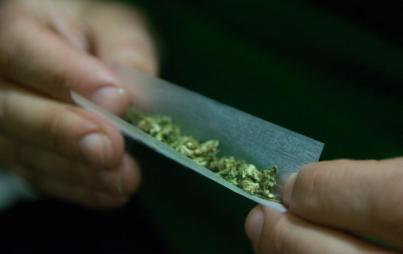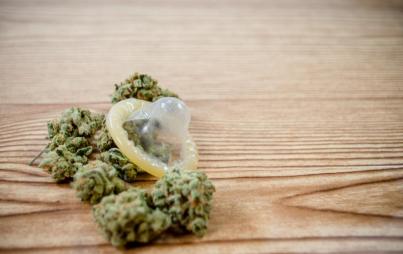
Because of the schedule one classification there isn’t much out there (in the US) by way of scientific research that addresses whether or not marijuana is beneficial for mental health issues like anxiety or depression.
There are currently 23 states with some form of medical marijuana legalization, but only four (plus the District of Columbia) with recreational legalization. People in 23 states agree marijuana significantly aids health when people are ill, but what if the state says it doesn't?
Research in the United States on marijuana’s risks and benefits has been limited since it was classified as a schedule one drug during the Nixon administration, although it is now known the administration had an idea of the benefits and purposely sidelined research. Because of the schedule one classification there isn’t much out there (in the US) by way of scientific research that addresses whether or not marijuana is beneficial for mental health issues like anxiety or depression. The thing is, the pharmaceuticals that are handed out for what are considered “less pressing” mental health issues often have dangerous side effects, but because there are no mainstream alternatives they remain the standard course. Why?
If marijuana interacts with the brain in such a way that it eases seizures, it is reasonable to expect serious research into whether it can positively affect the brain for non-life threatening, often debilitating, mental health issues. States like California allow people to acquire a medical card for issues like anxiety, but their medical law is often the butt of jokes among critics because of that leniency. Other states like New York have taken a much more paternalistic approach to medical marijuana, with a very limited list of ailments that qualify.
New Jersey governor Chris Christie said he would crack down on marijuana if he ever becomes president (which at this point is highly unlikely) because he believes it is a “gateway drug,” and because we have major addiction problems in the United States. He is right about the last part — we do have a major addiction problem in the US, but it has a lot to do with legal substances like alcohol and prescription drugs.
According to the CDC, the US is in the midst of a prescription drug overdose epidemic, but Christie, like most other lawmakers, stays away from delving into the question of American reliance on pharmaceuticals. With his statement, Christie is not showing a commitment to keeping Americans safe and healthy, but rather his commitment to maintaining the status quo, even if the facts don’t back up the policy.
This is not so much a question about marijuana as the general trend in our government and society to create and accept policy from dogma, rather than from solid evidence or fact. It is true that marijuana may be detrimental to a bored high schooler who needs to get herself motivated, but it is also true that the benefits of marijuana may be much more expansive than we acknowledge (not to mention the industrial possibilities of hemp, and the potentially revolutionary healing power of CBD).
Ultimately this is about digging ourselves out of the hole of cultural dogma we’ve created, and thinking outside of the box in an effort to create a healthy society that encourages evolution. We have come nowhere near close enough to understanding the human brain to have such a narrow concept of what may or may not be beneficial — not just for our health, but also for our overall well-being.








